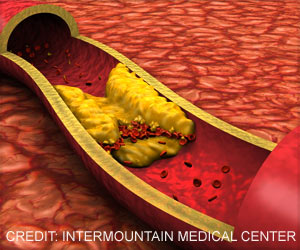The Canadian Society for Vascular Surgery has called for national screening for potential abdominal aortic aneurysms in men and high-risk women aged 65 and older.
The Canadian Society for Vascular Surgery has called for national screening for potential abdominal aortic aneurysms in men and high-risk women aged 65 and older.
Detecting the often fatal condition before an aneurysm bursts would save both lives and health-care dollars, the organization said."When you look at all patients, about 80 per cent of those that rupture their aneurysms will die," said Dr. Thomas Lindsay, a vascular surgeon at Toronto's University Health Network and a spokesperson for the society.
"Whereas if you fix it electively, the mortality … it's just less than five per cent."
The society is proposing that all men in the 65 to 74 age group as well as high-risk women undergo a one-time screening. (Screening involves checking seemingly healthy people for a condition in the hopes of taking early corrective action.)
Those found to have enlarged abdominal aortic arteries would be checked on an ongoing basis and would be offered the chance to have the problem surgically repaired if it expanded to a set size.
Abdominal aortic aneurysms occur in about five per cent of older men and just under one per cent of women in this age group. But women who smoked or have a family history of the condition are considered to be at elevated risk and it is those women the vascular surgeons say should be screened.
Advertisement
Screening is done by using an ultrasound to gauge the size of the abdominal aorta, the main blood vessel in the stomach. The procedure costs less than $55, the society said.
Advertisement
An abdominal aortic aneurysm — the condition that is reported to have killed Albert Einstein — is a medical emergency. Even people who make it to hospital run a high risk of dying, said Lindsay, who noted that in Ontario about 40 per cent of people who undergo surgery to repair a ruptured abdominal aorta don't survive, reports CBC News.
Clinical trials suggest screening older men at risk of an aneurysm is a cost-effective program, said Dr. Frank Lederle, a specialist in internal medicine and director of the Veterans Affairs Center for Epidemiological and Clinical Research in Minneapolis, Minn.
The trials did not show that it was cost-effective to screen women for the condition, he said.
But instituting a screening program would require the health-care system to handle the surge in test demands as well as the increased need for surgery to repair enlarged abdominal aortas when they are found. Lindsay admitted there might be some capacity problems if Canadian provinces and territories were to adopt screening programs. "We're probably going to need to look at resources," he said.
Lederle said programs also need to address issues of patient anxiety. Unless the messages of risk were properly framed, patients found to have enlarged abdominal aortic arteries might demand operations that they might otherwise never need to undergo. (Not all enlarged abdominal aortic arteries go on to rupture.)
"It's important to not over-treat when you screen," Lederle said. "And patient anxiety becomes a factor. So how this is portrayed and conveyed to the patient is very important."
Source-Medindia
GPL/L







